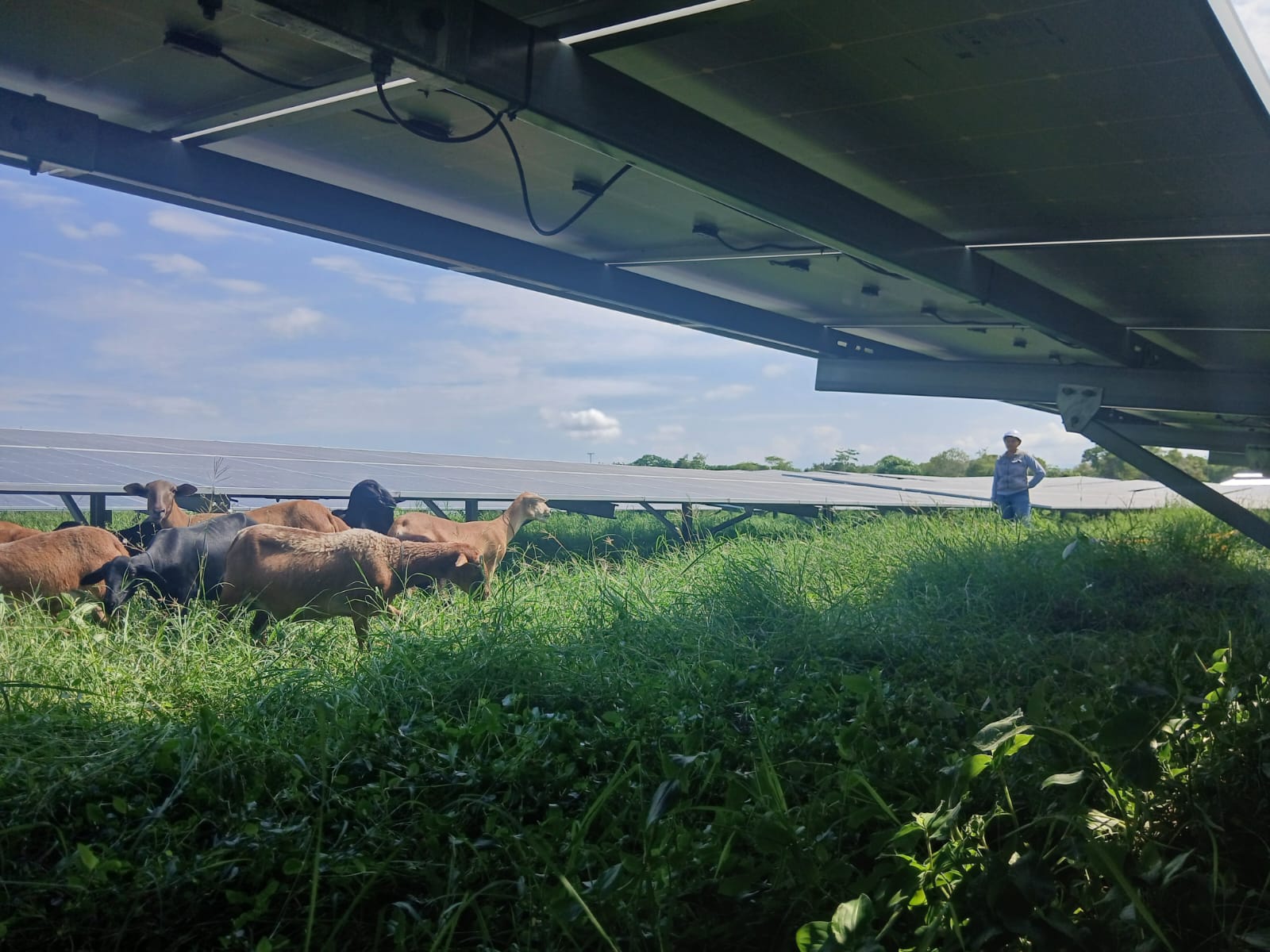LONGi collaborated with Erco Energía to promote an agrivoltaic project in the Guamo & Numbana photovoltaic parks, located in the department of Tolima, Colombia.
This project combines clean energy and agricultural sustainability by integrating 50 sheep, which contribute to the natural maintenance of the area under the solar modules, keeping it free of excessive vegetation. In addition, it stands out for its social approach by employing and training women from the region to carry out grazing and animal care activities.
The initiative not only optimizes land use by combining renewable energy generation and livestock farming, but also promotes female labor inclusion and local economic development, positioning itself as a unique model of its kind.

The integration of photovoltaics with agriculture, better known as agrivoltaics, has become highly relevant in the context of sustainability and climate change, as it reduces greenhouse gas emissions, and promotes the integration and involvement of communities and food security.
In the case of Guamo & Numbana, the utilization of the 32.86 hectares of land is high, as approximately 44GWh of clean energy is produced annually in the same grazing area for 50 sheep.
“With this project, Erco Energía promotes the empowerment of women within the municipality’s economy, creating employment opportunities while providing a solution to the need to use agricultural machinery and agrochemicals that are harmful to the environment, through the implementation of sustainable practices such as sheep cattle farming,” said Santiago Celis, ESG Manager of Erco Energía.
“At LONGi we have a real commitment to sustainability, and we are proud to be part of initiatives like this. Under the mission of harnessing the best of solar energy to build a sustainable world, we are making a significant impact, together with our customers, in the welfare of communities and the environment,” said Hugo Fernandez, Country Manager Colombia.
LONGi will continue to promote projects that seek to find innovative strategies that allow the harmonious coexistence between technology and agriculture, prioritizing the involvement of communities to ensure the long-term sustainability of the projects.

Leave A Comment